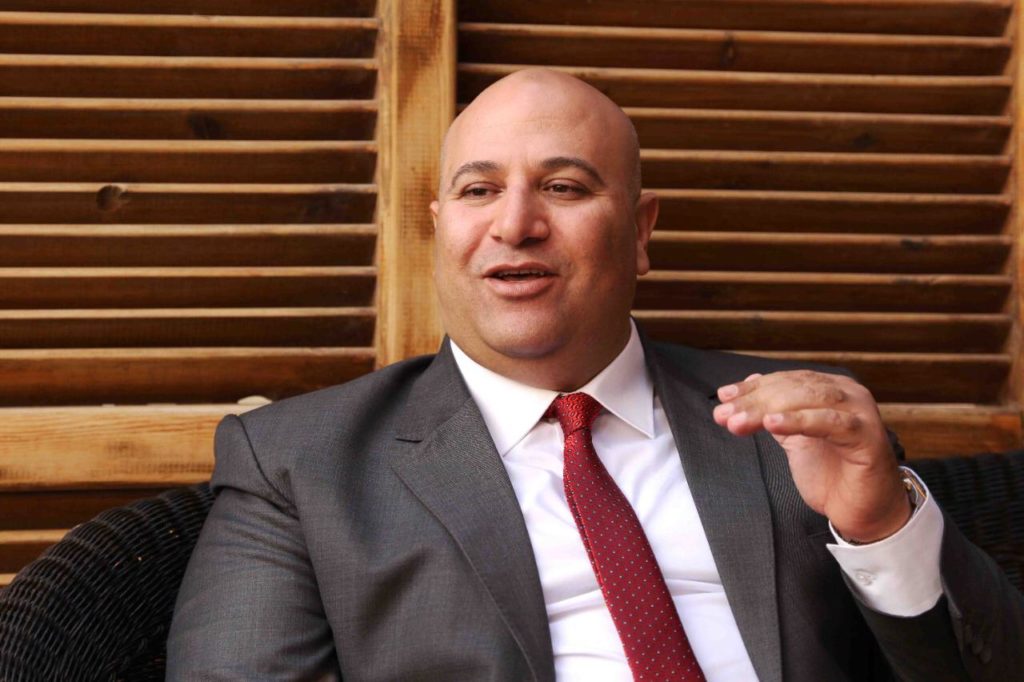Cairo – United International for Feed, Import and Export has recently announced the launch of its new project in the province of New Valley in Egypt with investments of approximately EGP 150 million (USD 9.5 million). On the premises, a poultry farm and a cattle breeding farm will be established, and products for use in the feed industry will be grown.

The company’s chairman Shaaban Abdel Hafez (pictured above) explained that the reopening of poultry, poultry products and feed exports in Egypt, which had been discontinued during the outbreak of avian influenza back in 2006, has encouraged investors to turn their resources to creating new farms aiming at serving both domestic and global demands.
In an interview with ANBA, Hafez reassured that Egypt has a friendly investment environment that is attractive to interested parties from outside, considering the low cost of labor and the market expansion, which includes more than 100 million local consumers, in addition to a demand from other markets that the Arab country has trade agreements with.
In June 2020, the World Organization for Animal Health (OIE) added Egypt to the list of bird flu-free countries, accrediting 32 Egyptian-based companies to resume exports. It’s worthy noting that large volumes of laying chickens and broilers, table eggs, and feed for some Arab countries like United Arab Emirates, Bahrain, and Oman.
Opportunities for Brazilians
To take advantage of their expertise and experience, Shaaban invited Brazilian investors to cooperate in the Egyptian poultry market, thus benefiting from what the country has to offer like tax-free exports to countries of the Arab League, East Africa, European Union, and other economic blocs.
He stressed that Brazil is one of the world’s largest poultry producers and exporters. He added that the country has exported large volumes of the product to Egypt in recent years. But Egypt has managed to attain self-sufficiency in poultry and table eggs, thus resulting in a decrease of imports from Brazil and other countries, Hafez said.
He underscored that livestock is going through an unprecedent phase in Egypt, receiving the support of countless political figures for it to thrive. In this regard, a veal project was launched to encourage beef production, and new places to invest in the sector opened. Fishery, in turn, experiences an all-time high, and domestic production has doubled.
The chairman revealed that Egypt is currently working on implementing an ambitious strategic plan to attain self-sufficiency in basic commodities like rice, oil and sugar by enhancing the performance of public industries, responsible for the production of strategic food commodities, thus increasing the operational efficiency by remodeling production lines. Large-scale nut cultivation is part of the plans, too.
Project in New Valley
“The project will be implemented in a total area of 400 feddans, but the initial phase is comprising 200 feddans that are being prepared for cultivation, which is taking place later this year. The next phase is forecast to start in 2022,” the chairman said on the new project of the company. Total area comprises 168 hectares, and the initial area is around 84 hectares large.
The company specializes in poultry production, and it now has 24,000 laying chicken divided into two units, and it produces around 400,000 broilers a cycle. The company’s sales of maize and soy (imported from Argentina, United States, Ukraine) amount to 150,000 tonnes a year. The executive added that the company provides goods to over 30 factories.
United International for Feed, Import and Export was founded in 1999 while Egyptian Company for Investment, Land Reclamation, Poultry Investment and Animal Production was created in 2018 in New Valley.
Translated by Guilherme Miranda




